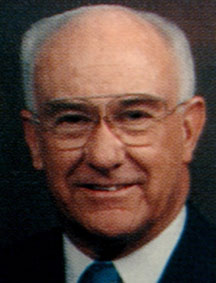Federal prosecutors in San Diego have subpoenaed documents from three House committees as part of an investigation into special-interest earmarks in spending bills.
The demand ratchets up an investigation by the U.S. attorney’s office in San Diego into contracts awarded by the Defense Department and other agencies. The probe stems from the bribery case against Rep. Randy “Duke” Cunningham (R-Rancho Santa Fe), who pleaded guilty and resigned in 2005.
The scope of the investigation is unclear, although the request for documents is considered unusually broad.
The subpoenas, which follow a failed attempt by the Justice Department to persuade the Republican Congress to voluntarily turn over thousands of documents, could test Democrats’ pledge to reform ethics in the new Congress. Last year, House Minority Leader Nancy Pelosi (D-San Francisco) – who today becomes House speaker – opposed a broad-based Justice Department search warrant targeting Rep. William J. Jefferson (D-La.).
The subpoenas went to the armed services, appropriations and intelligence committees, whose Republican chairmen reported the subpoenas to outgoing House Speaker J. Dennis Hastert (R-Ill.) in letters dated two weeks ago.
The subpoenas were made public Wednesday by the Congressional Record online. The House is supposed to turn over the requested records by Jan. 11 or else file an objection with the U.S. District Court in San Diego. Typically, such deadlines are extended.
Prosecutors in San Diego and a spokesman for the general counsel of the House declined to comment, and a Pelosi spokeswoman had no immediate comment.
The subpoenas are an escalation of a nine-month tug-of-war between the Justice Department and House Republicans. Prosecutors had asked the committees to turn over the information voluntarily.
House leaders and their lawyers consider the request constitutionally suspect, saying it runs afoul of the “speech or debate” clause, which protects members of Congress from prosecution for their legislative acts, including earmarks. Some have also complained that the committees would need months to compile such data.
None of the requested documents had been turned over as of Wednesday.
Pelosi campaigned in the fall on a platform of open and honest government, and has made one of her first orders of business an ethics package that would identify members of Congress who inserted earmarks for pet projects into bills.
The use of earmarks has tripled over the last decade, the Congressional Research Service estimates, with 13,000 earmarks in the last fiscal year adding more than $67 billion to spending bills.
The “speech or debate” privilege is at the core of a legal fight over an FBI search of Jefferson’s congressional office in May. The search and seizure of documents followed an FBI sting in which about $90,000 in foil-wrapped $100 bills was found in the freezer of Jefferson’s Washington home.
Pelosi and Hastert criticized the office raid and urged the government to return the seized documents. Pelosi later led a successful effort to strip Jefferson of an influential committee assignment until the federal corruption investigation was completed. (Jefferson has not been charged.)
Former Rep. Cunningham is serving an eight-year prison term after pleading guilty to taking $2.4 million in bribes from defense contractors and evading more than $1 million in taxes.
A House Intelligence Committee report issued in October concluded that Cunningham had used his position on that panel to steer more than $70 million to companies run by cronies, with much of the money going to businessman Brent R. Wilkes of Poway, Calif.
Wilkes remains under investigation.
The San Diego federal prosecutors have also been examining the relationship between Wilkes and Kyle Dustin “Dusty” Foggo, who resigned as CIA executive director in the spring after federal agents searched his office and home.
Investigators have examined at least one contract that was awarded to Wilkes while Foggo was a senior CIA procurement officer in Germany.
rick.schmitt@latimes.com













